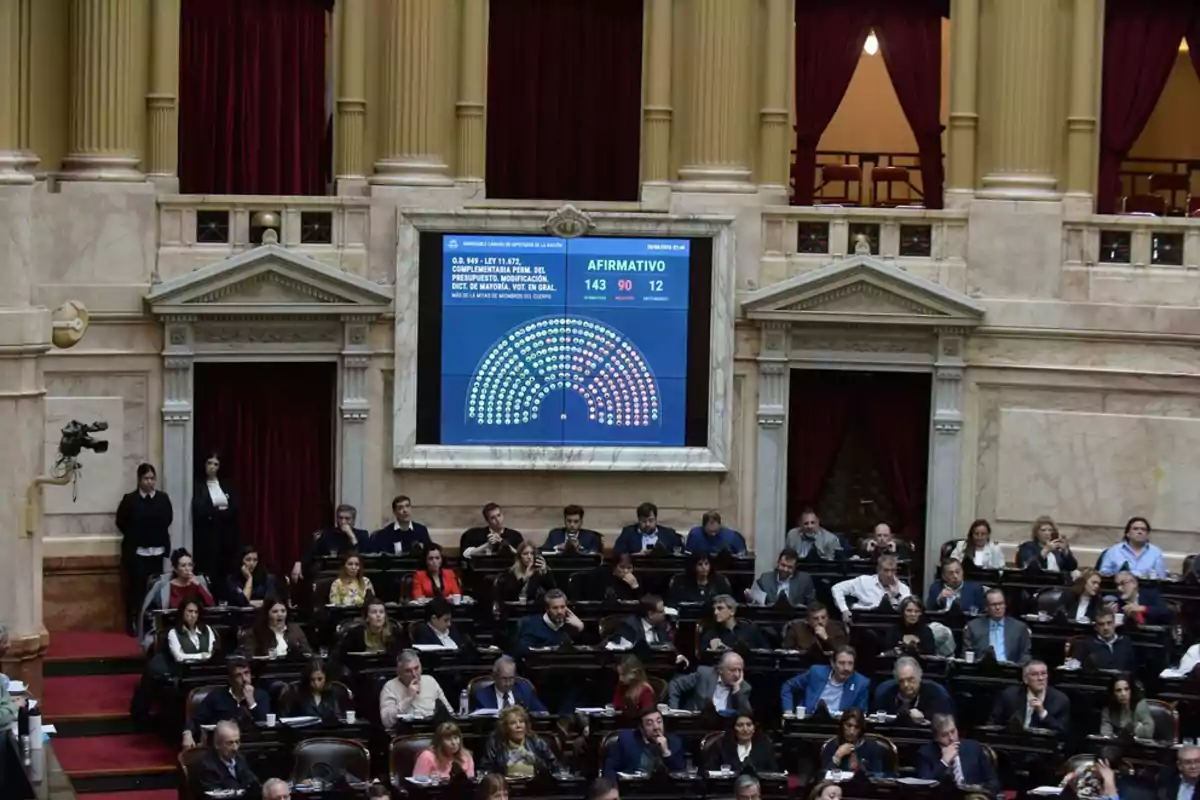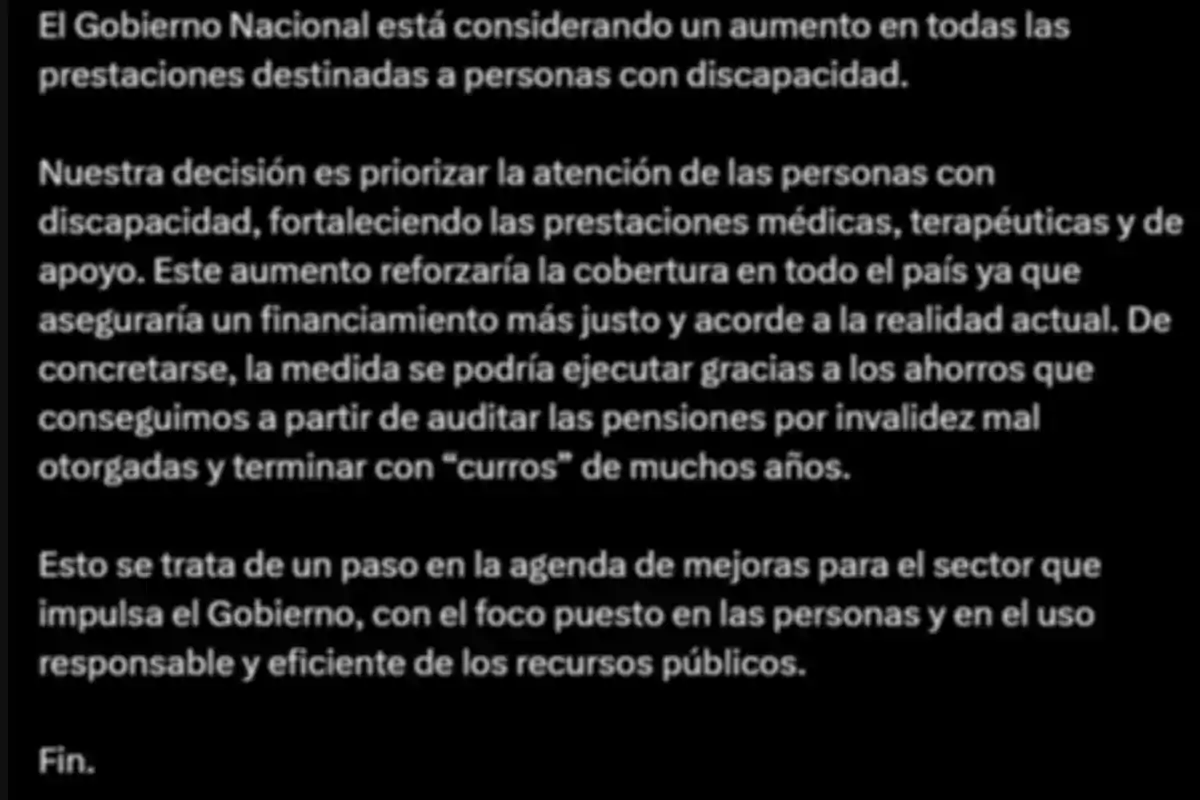
The Government announced increases in disability benefits
The opposition approved the rejection of the presidential veto on a law that would cost more than 6 trillion pesos (13.2 billion dollars) per year
President Javier Milei once again found himself at the center of the political scene after a Wednesday filled with key decisions. While the opposition was moving forward in the Chamber of Deputies with the overriding of his veto on the Disability Emergency Law, the Casa Rosada announced a responsible and sustainable alternative: a significant increase in benefits for people with disabilities, financed through genuine savings and the elimination of privileges.
Presidential spokesperson Manuel Adorni communicated the decision just half an hour before the parliamentary session. "The national government is considering an increase in all benefits aimed at people with disabilities. The decision is to prioritize care, strengthen medical, therapeutic, and support services," he stated, highlighting that the measure could be financed thanks to audits of improperly granted pensions that eliminated "schemes that had been in place for many years."

Despite this announcement, the Chamber of Deputies approved, with 172 votes in favor, 73 against, and 2 abstentions, the annulment of Milei's veto on the Disability Emergency Law, promoted by Kirchnerism and its allies. The initiative must now be considered in the Senate, where, if the same vote is repeated, the regulation would come into effect.
The President had vetoed this project because, far from improving the quality of life for people with disabilities, it entailed an unsustainable fiscal impact: more than 6 trillion pesos annually (about 5 billion dollars), which would mean the destruction of the fiscal surplus, the bankruptcy of the State, and the onset of a new economic crisis.
Among the most serious points of the regulation was the creation of a "Universal Disability Pension", which would have automatically incorporated 1.6 million new beneficiaries without a serious review criterion and without incompatibility clauses. This would have resulted in at least 500,000 people receiving a double pension, overlapping existing benefits and distorting the system's equity.

Furthermore, the law proposed to grant the non-contributory pension to any person with a Unique Disability Certificate (CUD), without distinguishing between mild limitations and severe cases. During Kirchnerist governments, the massive and uncontrolled distribution of these certificates had already led to abuses and multi-million-dollar fraud against the public treasury.
In contrast to this policy of uncontrolled spending, the libertarian administration announced a strengthening plan for the sector based on efficiency, control, and distributive justice. Adorni summarized it as follows: "This increase would reinforce coverage throughout the country as it would ensure fairer financing in line with the current reality. If implemented, the measure could be carried out thanks to the savings we achieved by auditing improperly granted disability pensions and putting an end to schemes that had been in place for many years."
More posts: